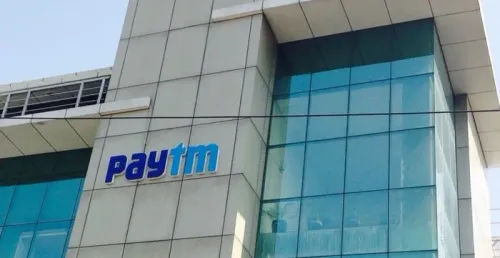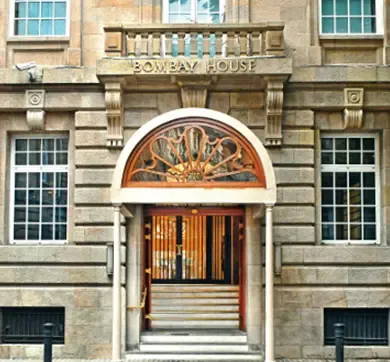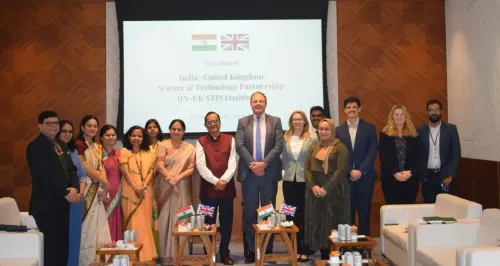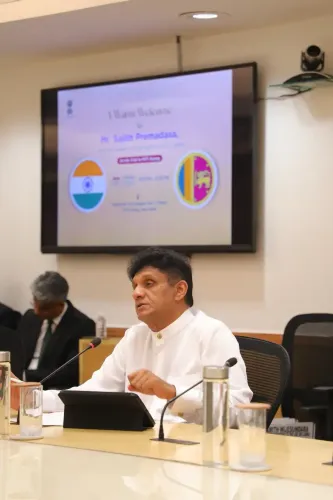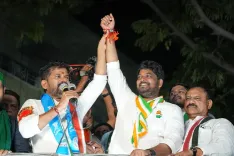Finance Secretary: Entrepreneurs Need to Embrace Calculated Risks for Growth and Job Creation
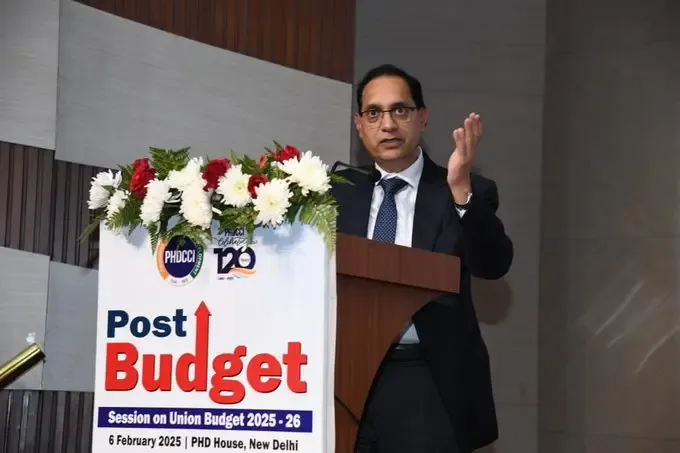
Synopsis
Key Takeaways
- Entrepreneurs should take calculated risks.
- Government investments focus on capital expenditure.
- Key sectors include agriculture, MSMEs, investment, and exports.
- Exemptions in customs duties for critical sectors.
- Focus on middle class and MSMEs for boosting growth.
New Delhi, Feb 6 (NationPress) As the government injects capital back into the economy through the Union Budget, Indian entrepreneurs are urged to take calculated risks to establish institutions and create job opportunities, stated Finance Secretary Tuhin Kanta Pandey on Thursday.
During a post-budget meeting at the PHDCCI in the national capital, he emphasized that the government has been making prudent investments since last year.
"Our borrowing of Rs 15.68 lakh crore has remained unchanged, with a significant portion of it -- approximately Rs 15.48 lakh crore -- already allocated for capital expenditure," Pandey shared with the attendees.
He also pointed out that the Budget is pro-people, pro-growth, and pro-taxpayers.
“Key issues discussed included strategies to stimulate growth as India stands as one of the fastest-growing economies. For the vision of ‘Viksit Bharat’, it is essential to ensure equitable growth that aligns with demography and demand,” added Pandey.
The four primary engines driving this Budget are agriculture, MSMEs, investment, and exports.
“Regarding MSMEs, we must thoroughly address all challenges; we need to enhance credit guarantees, marketing, and facilitate a more effective participation of MSMEs in export growth,” remarked the Finance Secretary.
No sector has been overlooked in this year's Budget, with an allocation of around Rs 20,000 crore earmarked for the R&D sector. He also mentioned that the upcoming Income Tax Bill will be exceptionally transformative.
Central Board of Indirect Taxes and Customs (CBIC) Chairman Sanjay Kumar Agarwal discussed the rationalization of the customs duty framework and shared insights on the historical context of this endeavor.
He noted that the partial transfer of the basic customs duty to AIDC will have a minimal impact on state transfers, as the effective duty incidence is maintained at a low level through the AIDC schedule.
Additionally, waste and scrap of 12 critical minerals have been granted exemptions. Likewise, capital goods, cells for manufacturing EVs, and mobile phones are also exempted.
“The voluntary declarations submitted by importers provide significant relief, and customs procedures have seen simplifications as well,” he added.
PHDCCI President Hemant Jain labeled the 2025-26 budget as a historic Budget, stating that its core focus areas are essential for development. The emphasis on the middle class and MSMEs is expected to enhance consumption and production, stimulate private investments, and generate employment opportunities,” he concluded.

